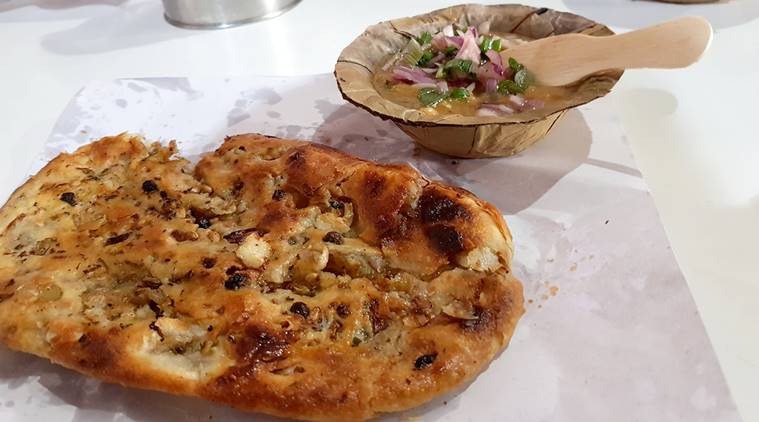
When it was started as a small shop in the interiors of Amritsar 67 years ago, no one could imagine it would spawn a phenomenon a few decades down the line. Pehalwan Kulcha shop at Dhab Khatikan in the Walled City is counted among the pioneers of Amristari kulchas as we know it today.
In 1952, Pehalwan Atma Ram, a professional wrestler, around 60 at the time, took the concept of the Peshawari khameeri roti (sourdough naan), and turned it around to create Amritsari naan. Since sourdough wasn’t suitable for the warm climate of north India, he used maida dough and stuffed it with boiled potatoes to present it as a whole meal. The combination of chana and tamarind-onion chutney was added later.
Later, Atma Ram’s son Nathu Ram, who was also a professional wrestler, took over. Today, the latter’s son, Harish Kumar, in his 40s, runs the establishment. He says, “We have maintained consistency in the preparation; even the slightly oval shape of the kulcha and its size have remained the same.” In the potato filling, he says, green cardamom, mint, khada masala, ground garam masala, and sometimes, onion and cauliflower are added.
As Atma Ram’s business started doing well, similar shops mushroomed in the neighbourhood, selling the same combination. Not so surprisingly, all of them did roaring business in the ’50s and ’60s, Kumar recalls. None of them operates anymore. As Amritsari naan evolved to become Amritsari kulcha over the years, the concept caught on.
Today, inside the Walled City, which is close to the Golden Temple, and happens to be the most touristy part of the city, there are 250 kulcha shops within a mere 10-km radius. In the entire city, their total number is not less than 500. All of them are teeming with foodies throughout the week.
To beat the harsh summer, Atma Ram used to serve a chilled glass of creamy lassi. Today, however, people are health conscious and avoid having too much cream, says Kumar. “Instead, we serve aerated drinks, even diet cola,” he adds. For NRI customers, who are averse to lavish use of butter and ghee, the shop offers olive oil kulchas, even though Kumar admits they may not be as good as the original thing.
Every day, the shop opens at 8 am and pulls down its shutters by 2 pm. “Kulchas can be digested well only if had in the first half of the day though tourists like to have it at all hours,” he says. While Kumar doesn’t reveal the number of kulchas he sells every day in order not to “jinx” it, he says there has not been a day when they haven’t exhausted their stock. Each kulcha costs Rs 50 per piece; the unlimited supply of chana is complimentary.
This article appeared in print with the headline: Bread and Better